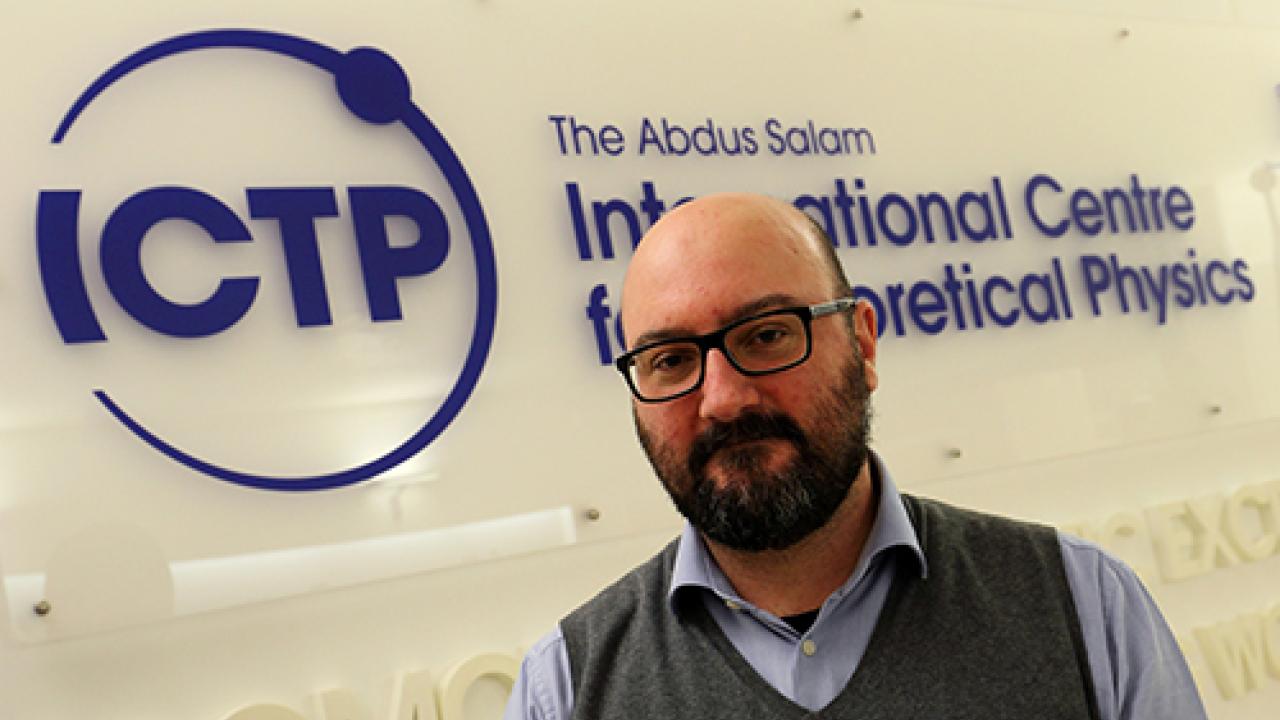
ICTP condensed matter physicist Antonello Scardicchio has been awarded a Google Faculty Research Award for work related to quantum computing. The US$72,000 in seed funding will be used to support graduate students and postdoctoral associates working in his group.
Quantum computing has the potential to revolutionize the speed and efficiency of computers because of the way it processes information: as quantum bits, or qubits. Unlike classic computers, where information is stored as bits and each bit is either zero or one, quantum computing’s qubits are made of quantum particles that can exist in a superposition of both values at the same time. This could allow quantum computers to process information millions of times faster than today’s supercomputers.
The algorithms used in quantum computing presumably are faster than algorithms used on classical computers because they take advantage of the speed offered by interference of matter waves, a peculiar quantum phenomenon. To confirm the performance superiority of quantum algorithms would help to define which problems can benefit significantly from using a quantum computer instead of a classical one. This is what Scardicchio’s research aims to do, using techniques developed in statistical mechanics and condensed matter, in particular the analysis of differences of quantum and classical dynamics. By understanding in which situations quantum interference can speed up the dynamics and in which ones, instead, the interference hinders the dynamics (a phenomenon known as localization), one can give guidelines for the design of quantum algorithms to exploit the first and avoid as much as possible the second.
“It is certainly an honor to receive such an award, in particular since this recognizes the practical importance of our theoretical investigations,” says Scardicchio.
The award builds upon Scardicchio’s past research on spin glasses, or disordered magnets whose atoms are not aligned in a regular pattern. "Eventually, I realized that the physics of quantum spin glasses is actually connected with how you build a quantum computer," he explains, adding, "Phenomena that occur in quantum spin glasses have a bearing on the performance of quantum algorithms." The work attracted Google’s interest, and in particular that of their Quantum Artificial Intelligence group, which is actively working on building a quantum computing device.
“Quantum computation, when effectively implemented, will change the way we do theoretical condensed matter, and in general our ability to treat quantum many-body systems,” says Scardicchio. He adds that simulations are an invaluable tool for condensed matter physicists, and being able to simulate quantum systems in an effective way will make researchers able to test and confirm or discard quickly new ideas and conjectures.
Google Faculty Research Awards are highly competitive; only 15% of applicants receive funding after going through a rigorous review process.
















